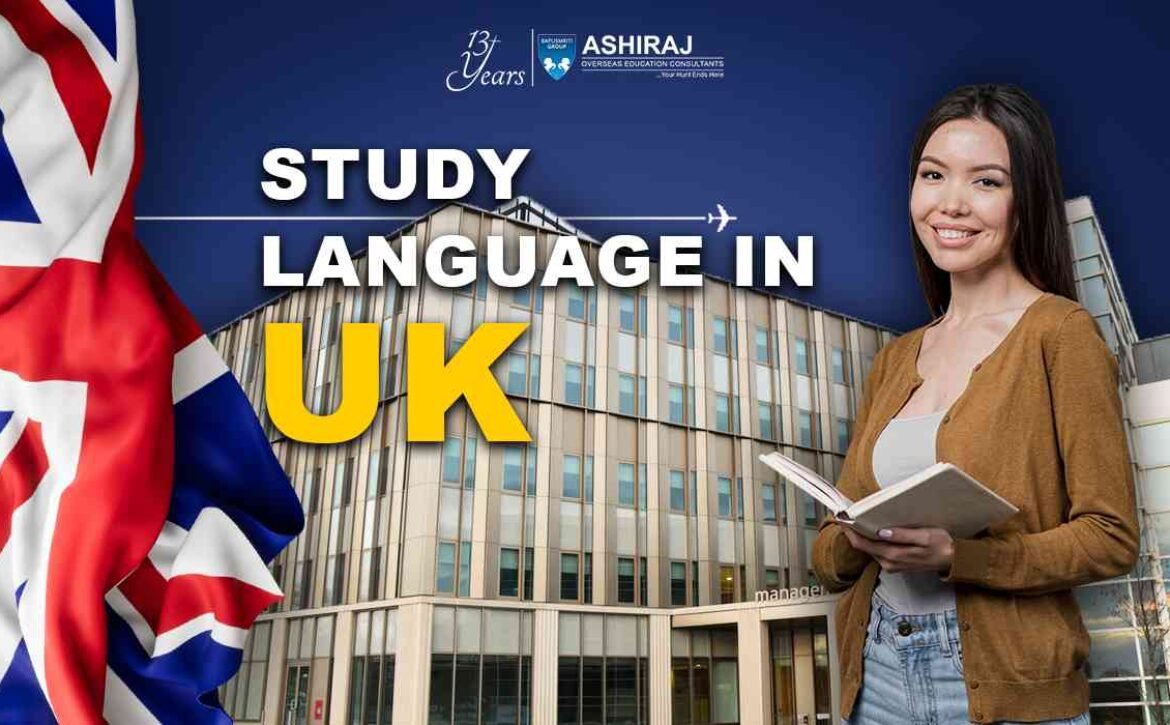
Language in UK
Language in the UK is a rich tapestry woven from centuries of history, migration, and cultural exchange. With its diverse linguistic landscape, the United Kingdom boasts a multitude of languages, dialects, and accents that reflect its complex heritage. From the Celtic languages of Welsh, Scottish Gaelic, and Irish to the Germanic roots of English, and the influences of immigration from across the globe, the linguistic diversity within the UK is a testament to its multicultural identity. Furthermore, the evolution of language in the UK continues to be shaped by social, political, and technological factors, making it a dynamic and ever-changing phenomenon.
In examining Language in the UK, one must consider not only the dominant role of English but also the preservation efforts for minority languages and dialects. Despite the widespread use of English as the primary language of communication, regional accents and dialects remain integral to the cultural identity of different communities across the UK. Additionally, the rise of digital communication and globalization has brought new challenges and opportunities for language use and adaptation, influencing linguistic trends and expressions within British society. Understanding the intricacies of Language in the UK provides insight into the country’s rich cultural heritage and ongoing linguistic evolution.
Why to Study Language in UK?
- Rich Linguistic Diversity: The UK boasts a diverse linguistic landscape, encompassing languages such as English, Welsh, Scottish Gaelic, and Irish, reflecting its multicultural heritage.
- Academic Excellence: Renowned universities in the UK offer world-class language programs, providing students with exceptional learning opportunities and access to expert faculty.
- Cultural Immersion: Studying language in the UK allows for immersive experiences in British culture, history, and literature, enhancing understanding and appreciation of the language’s context.
- Career Advantages: Proficiency in languages spoken in the UK opens doors to a wide range of career opportunities in fields such as translation, interpretation, international business, diplomacy, and tourism.
- Networking Opportunities: Studying language in the UK provides opportunities to connect with peers and professionals from diverse backgrounds, fostering valuable connections for future career endeavors.
- Linguistic Innovation: The UK’s dynamic language scene, influenced by social, political, and technological factors, offers insights into linguistic trends and innovations, making it an exciting place to study language.
- Preservation Efforts: Studying language in the UK supports efforts to preserve and revitalize minority languages and dialects, contributing to cultural heritage conservation efforts.
- Personal Growth: Learning a language in the UK is not just an academic pursuit but also a journey of personal growth, fostering intercultural competence, empathy, and communication skills.
Top Universities to Study Language in UK
University | QS World University Ranking 2023 | Type of University | Average Annual Fees | Programs Offered |
University of Oxford | 1 | Public | £9,250-£37,510 | Linguistics, Modern Languages |
University of Cambridge | 2 | Public | £9,250-£36,825 | English Language, Linguistics |
University College London | 10 | Public | £9,250-£21,420 | Languages, Linguistics |
University of Edinburgh | 20 | Public | £9,250-£32,700 | Celtic Studies, English Language |
King’s College London | 24 | Public | £9,250-£25,750 | Modern Languages, Translation |
Studying language in the UK opens doors to a world of opportunities, and choosing the right university is crucial for a fulfilling academic journey. Here’s a list of the top universities in the UK for Language in UK, along with their QS World University Rankings 2023, type of university, average annual fees, and programs offered:
- University of Oxford: Ranked first by QS, it offers programs in Linguistics and Modern Languages, with fees ranging from £9,250 to £37,510 per year.
- University of Cambridge: Ranked second, it provides courses in English Language and Linguistics, with fees ranging from £9,250 to £36,825 annually.
- University College London (UCL): Ranked tenth, UCL offers programs in Languages and Linguistics, with fees ranging from £9,250 to £21,420 per year.
- University of Edinburgh: Ranked twentieth, it offers Celtic Studies and English Language programs, with fees ranging from £9,250 to £32,700 annually.
- King’s College London: Ranked twenty-fourth, it offers Modern Languages and Translation courses, with fees ranging from £9,250 to £25,750 per year. Choosing one of these prestigious institutions can provide a solid foundation for a successful career in Language in UK.
Course Curriculum for Language in UK
- Language Acquisition: The curriculum typically covers theories and methods of language learning and acquisition, including phonetics, syntax, and semantics, providing students with a deep understanding of language structure and usage in various contexts.
- Cultural Studies: Students explore the cultural aspects of language, including literature, history, and societal norms, enhancing their understanding of the cultural context in which languages evolve and are used.
- Language Proficiency: Courses focus on developing language proficiency in both spoken and written forms, with emphasis on grammar, vocabulary, and communication skills, enabling students to effectively express themselves in the target language.
- Translation and Interpretation: The curriculum often includes modules on translation and interpretation techniques, preparing students for careers in language services such as translation, interpretation, and localization.
- Specialized Electives: Students have the opportunity to choose specialized electives tailored to their interests and career goals, such as linguistics, sociolinguistics, language teaching methodologies, or specific language studies.
Studying the course curriculum of Language in UK provides students with a comprehensive understanding of language structure, usage, and cultural context, equipping them with the skills and knowledge necessary for success in various language-related fields.
Eligibility Criteria & Admission Requirements for MS in Language in UK
- Language Proficiency Tests: Applicants are typically required to provide scores from standardized English proficiency tests such as IELTS or TOEFL. Minimum scores may vary depending on the institution and program requirements.
- Standardized Aptitude Tests: Some universities may also require scores from standardized aptitude tests like GRE or GMAT for certain language programs. These scores demonstrate the applicant’s academic readiness and analytical skills.
- Educational Qualifications: Applicants are generally required to hold a bachelor’s degree or its equivalent from a recognized institution. Academic certificates demonstrating completion of previous education are typically required during the application process.
- Work Experience: While not always mandatory, relevant work experience in fields related to language studies or linguistics may strengthen an applicant’s candidacy. Previous work experience may be considered as part of the application evaluation process.
- Passport & Student Visa: International students must possess a valid passport and obtain a student visa to study in the UK. The visa application process typically requires proof of acceptance into a recognized institution and financial documentation demonstrating the ability to cover tuition and living expenses.
IELTS and TOEFL are commonly accepted English proficiency tests, while GRE and GMAT scores may be required for certain programs. Below is a table illustrating the minimum score requirements for each test:
Test | Minimum Score |
IELTS | 6.5 |
TOEFL | 90 |
GRE | 310 (Verbal + Quantitative) |
GMAT | 600 |
Meeting these eligibility criteria ensures that applicants are academically prepared and proficient in English, facilitating their success in Language in UK programs.
Documents Required for Studying Language in UK
- Passport: A valid passport is essential for international students planning to study in the UK, serving as proof of identity and nationality.
- Letters of Recommendation (LOR): Typically, applicants are required to submit two or more LORs from academic or professional referees who can attest to their character, abilities, and suitability for the language program.
- Statement of Purpose (SOP): An SOP outlines the applicant’s academic background, career goals, and reasons for pursuing the language program, providing insight into their motivations and aspirations.
- Curriculum Vitae (CV): A comprehensive CV detailing the applicant’s educational qualifications, work experience, skills, achievements, and extracurricular activities is often required.
- Official High School Transcripts: Transcripts from high school or secondary education institutions provide a record of academic performance and achievement, demonstrating eligibility for higher education programs.
- Educational Certificates: Certificates of completion or degrees earned from previous educational institutions validate the applicant’s academic credentials and qualifications.
- Work Experience Certificate: If applicable, a work experience certificate verifying employment history and relevant professional experience may be requested.
- Proof of Financial Resources: International students must demonstrate sufficient financial resources to cover tuition fees, living expenses, and other costs associated with studying in the UK, typically through bank statements, sponsorship letters, or scholarship awards.
Ensuring the timely submission of these documents is crucial for a smooth application process and admission into Language in UK programs.
Admission Process for Language in UK
- Research: Begin by researching universities and language programs in the UK that align with your interests and career goals. Consider factors such as program curriculum, faculty expertise, and campus facilities.
- Check Eligibility: Review the admission requirements for each program, including language proficiency tests such as IELTS or TOEFL, standardized aptitude tests like GRE or GMAT, educational qualifications, and any additional documents required.
- Prepare Documents: Gather all necessary documents, including passport, academic transcripts, certificates, letters of recommendation (LOR), statement of purpose (SOP), curriculum vitae (CV), and proof of financial resources.
- Register for Tests: If required, register and schedule exams for language proficiency tests (IELTS or TOEFL) and aptitude tests (GRE or GMAT). Prepare thoroughly and aim to achieve the minimum scores required by your chosen institutions.
- Submit Applications: Complete and submit online applications through the universities’ admission portals, ensuring all required documents are uploaded correctly and application fees are paid.
- Follow up: Monitor your application status regularly and follow up with the admissions office if necessary. Be prepared for possible interviews or additional requirements during the evaluation process.
- Acceptance and Visa: Upon receiving acceptance letters, proceed with the visa application process. Obtain a student visa and make necessary arrangements for accommodation and travel to the UK.
Navigating the admission process for Language in UK programs requires careful planning, preparation, and attention to detail to secure a spot in your desired institution and embark on your academic journey successfully.
“Education is the most powerful weapon which you can use to change the world.”
Nelson Mandela
Cost of Language Course in UK
- Tuition Fees: The cost of tuition for Language in UK programs varies depending on the institution, program duration, and level of study. On average, tuition fees can range from £9,000 to £20,000 per year for international students.
- Accommodation: Accommodation costs in the UK vary depending on factors such as location, type of accommodation, and amenities. Options include university halls of residence, private rented accommodation, and homestays, with prices ranging from £4,000 to £12,000 per year.
- Living Expenses: Budget for living expenses such as food, transportation, utilities, and personal expenses. On average, international students should expect to spend around £9,000 to £12,000 per year on living costs.
- Books and Supplies: Additional costs may include textbooks, course materials, and supplies required for language studies, which can amount to £500 to £1,000 per year.
- Health Insurance: International students are typically required to have health insurance coverage during their studies in the UK. Costs for health insurance vary but may range from £150 to £500 per year.
- Miscellaneous Expenses: Budget for miscellaneous expenses such as visa application fees, travel expenses, entertainment, and extracurricular activities, which can vary depending on personal preferences and lifestyle choices.
Understanding the cost of studying Language in UK is essential for prospective students to budget effectively and plan for their academic journey in the UK.
Scholarships for Language Courses in UK
Scholarship Name | Amount | Application Deadline |
Chevening Scholarships | Full tuition fees, monthly stipend, travel costs | November 2, 2024 |
Commonwealth Scholarships | Full tuition fees, monthly stipend, travel costs | Varies, typically March-April |
Gates Cambridge Scholarships | Full tuition fees, maintenance allowance, airfare | October 14, 2024 |
Rhodes Scholarships | Full tuition fees, stipend, travel expenses | Varies, typically September-October |
British Council Scholarships | Varies | Varies |
Scholarships for Language in UK programs offer financial support to international students pursuing language studies in the UK. Here’s a table summarizing some prominent scholarships, their amounts, and application deadlines:
- Chevening Scholarships: Offered by the UK government, Chevening Scholarships cover full tuition fees, monthly stipends, and travel costs. The application deadline is typically on November 2nd annually.
- Commonwealth Scholarships: Commonwealth Scholarships cover full tuition fees, monthly stipends, and travel costs for students from Commonwealth countries. Application deadlines vary but typically fall between March and April.
- Gates Cambridge Scholarships: Gates Cambridge Scholarships cover full tuition fees, maintenance allowances, and airfare for outstanding applicants. The application deadline is usually on October 14th each year.
- Rhodes Scholarships: Rhodes Scholarships cover full tuition fees, stipends, and travel expenses for exceptional students. Application deadlines vary but are generally in September or October.
- British Council Scholarships: Offered by the British Council, these scholarships provide varying amounts of financial assistance to eligible students. Application deadlines vary depending on the specific scholarship program. Applying for these scholarships can significantly alleviate the financial burden of studying Language in UK programs.
Career Opportunities After Language in UK
Job Profile | Average Salary (per annum) |
Translator/Interpreter | £25,000 – £40,000 |
Language Teacher | £20,000 – £35,000 |
Linguist | £30,000 – £45,000 |
International Relations Specialist | £35,000 – £60,000 |
Localization Specialist | £30,000 – £50,000 |
After completing Language in UK programs, graduates have various career opportunities available to them. Here’s a table outlining some potential job profiles along with their average salaries:
- Translator/Interpreter: Translators and interpreters convert written or spoken language from one language to another. Average salaries range from £25,000 to £40,000 per annum.
- Language Teacher: Language teachers educate students in various languages, including English as a second language (ESL) or foreign languages. Average salaries range from £20,000 to £35,000 per annum.
- Linguist: Linguists study the structure and use of language, analyzing language patterns and evolution. Average salaries range from £30,000 to £45,000 per annum.
- International Relations Specialist: International relations specialists facilitate communication and cooperation between countries or organizations, often requiring proficiency in multiple languages. Average salaries range from £35,000 to £60,000 per annum.
- Localization Specialist: Localization specialists adapt products or services for different linguistic and cultural markets, ensuring content is suitable for specific target audiences. Average salaries range from £30,000 to £50,000 per annum.
Exploring these career paths allows Language in UK graduates to leverage their linguistic skills and cultural understanding in diverse professional settings, contributing to their personal and professional growth.
Frequently Asked Questions About Language in UK
Commonly studied languages in the UK include English, French, Spanish, German, Mandarin, Arabic, and Italian, among others.
Yes, there are scholarships available for language programs in the UK, offered by institutions, governments, and organizations such as Chevening Scholarships, Commonwealth Scholarships, and the British Council.
Yes, international students can typically work part-time during their studies in the UK, usually up to 20 hours per week during term time and full-time during vacations.
Most institutions require international students to demonstrate proficiency in English through tests such as IELTS or TOEFL. Minimum scores vary depending on the program and institution.
Language programs in the UK can vary in duration, ranging from short-term courses lasting a few weeks to full-time degree programs lasting one to four years, depending on the level of study.
Yes, there are plenty of opportunities for cultural immersion while studying language in the UK, including interacting with locals, participating in cultural events, and exploring historical landmarks.
Job prospects after completing a language program in the UK are diverse and may include roles such as translator, language teacher, linguist, international relations specialist, and localization specialist.
The cost of studying language programs in the UK varies depending on factors such as the institution, program duration, and level of study, with average annual tuition fees ranging from £9,000 to £20,000 for international students.
Required documents may include a valid passport, academic transcripts, language proficiency test scores, letters of recommendation, statement of purpose, curriculum vitae, and proof of financial resources.
International students studying language programs in the UK can access a range of support services, including academic support, language assistance, accommodation guidance, and cultural integration programs provided by universities and student organizations.




